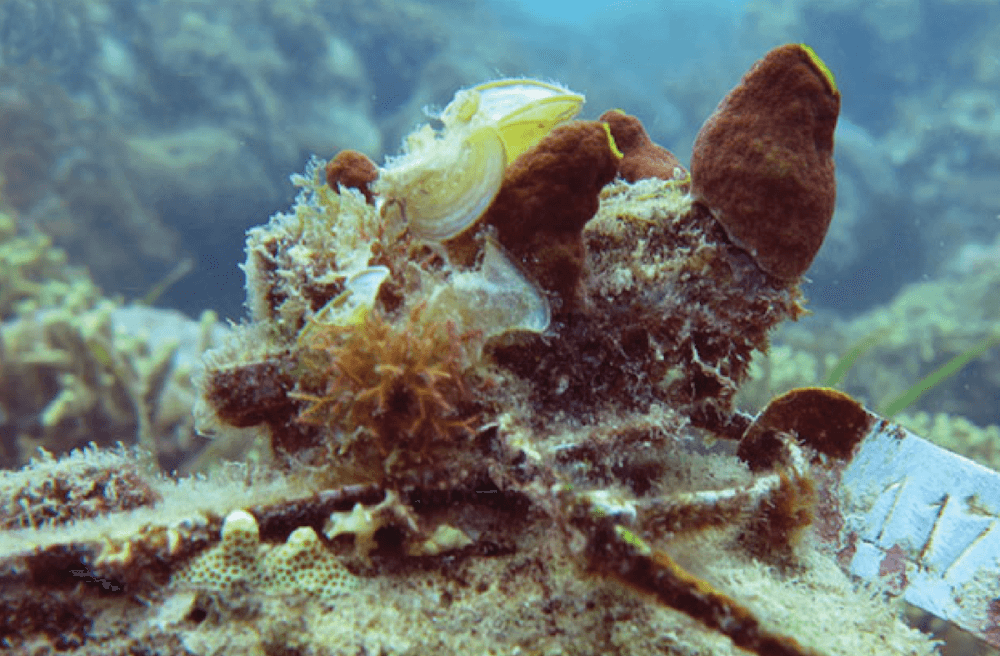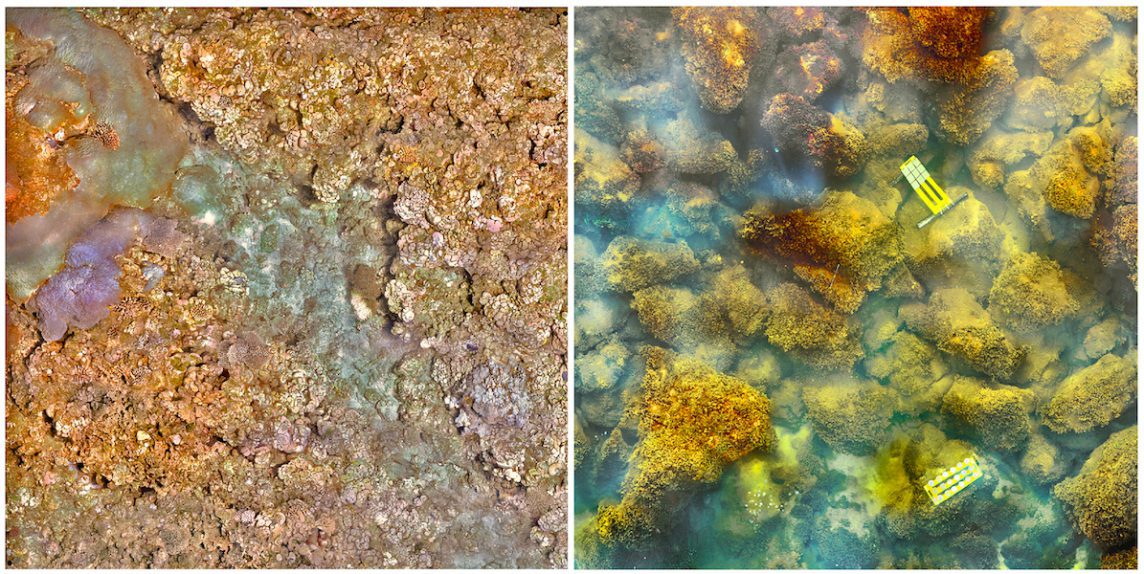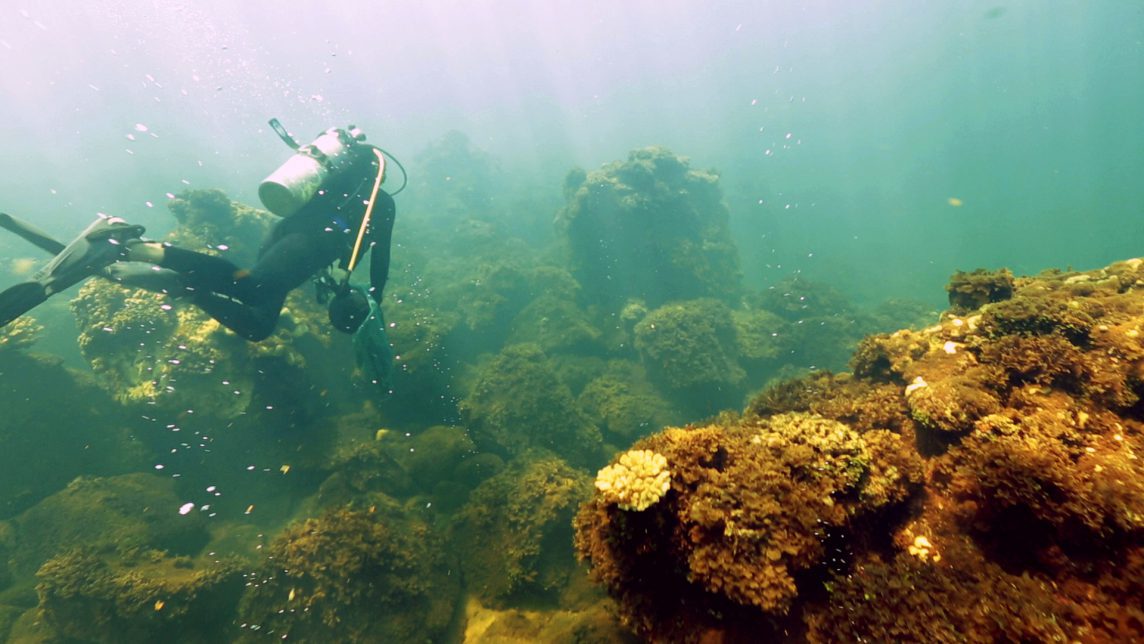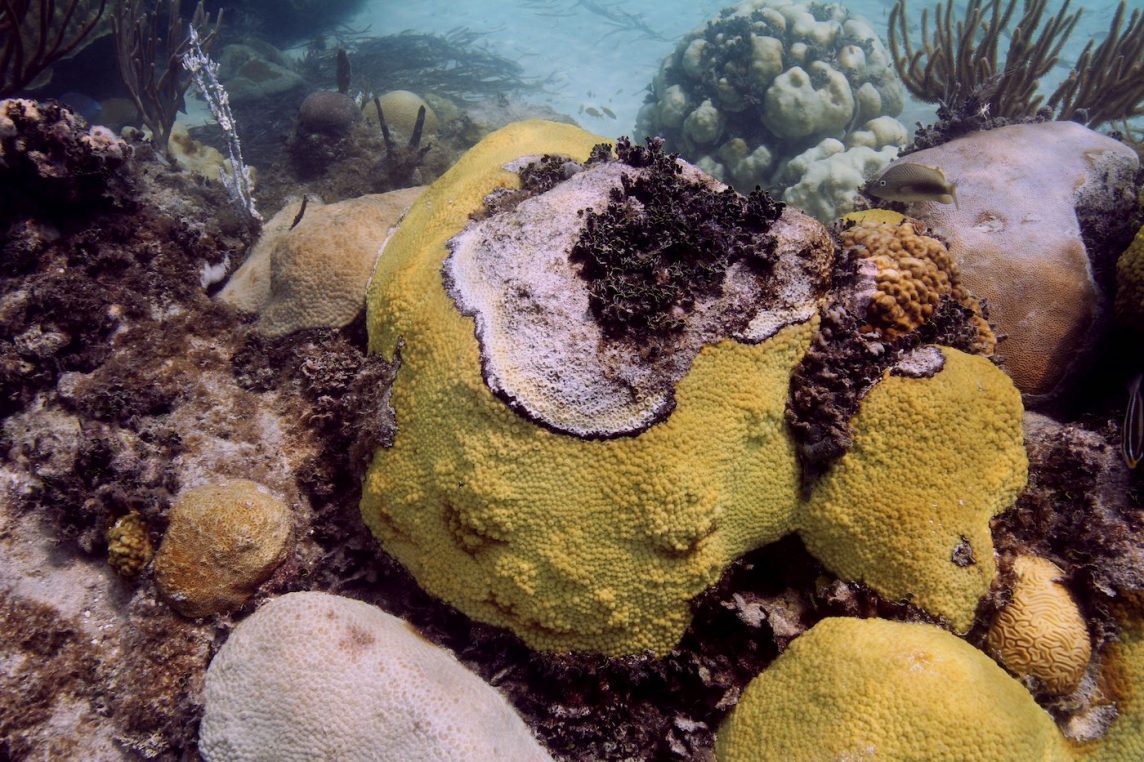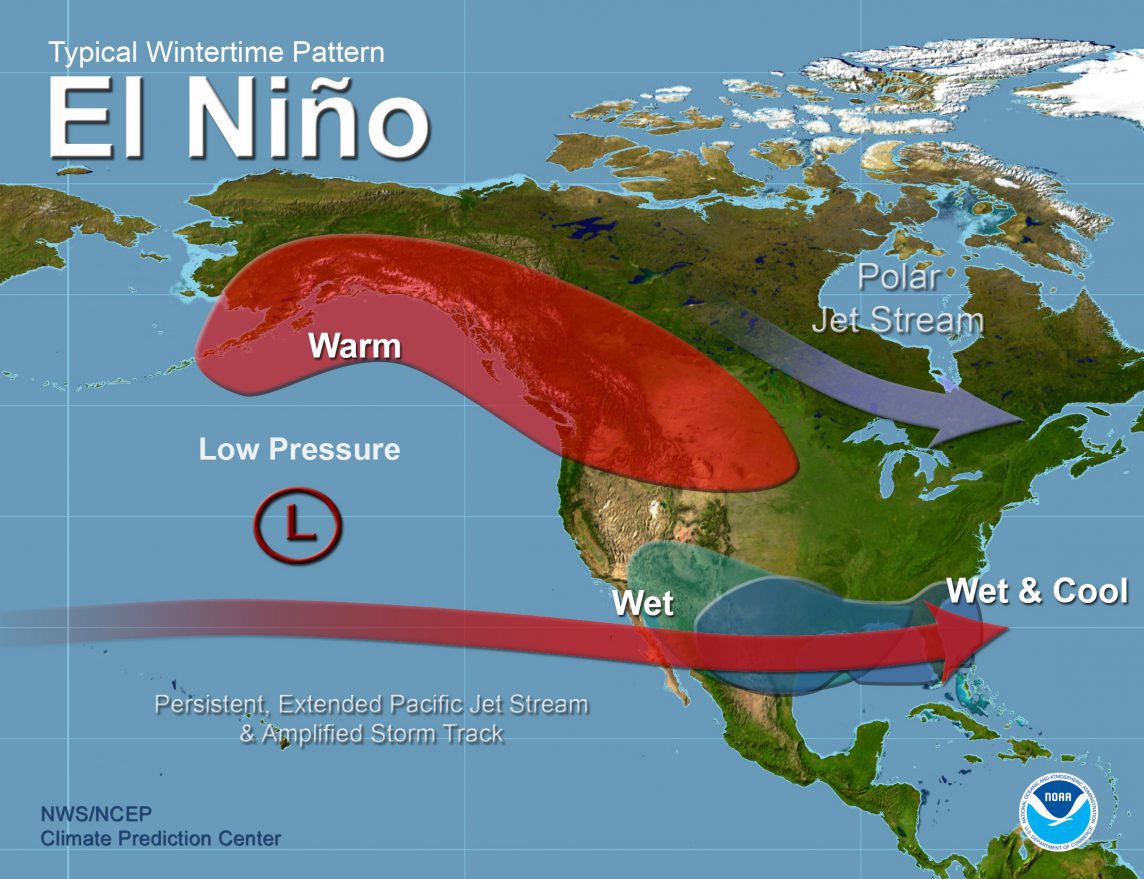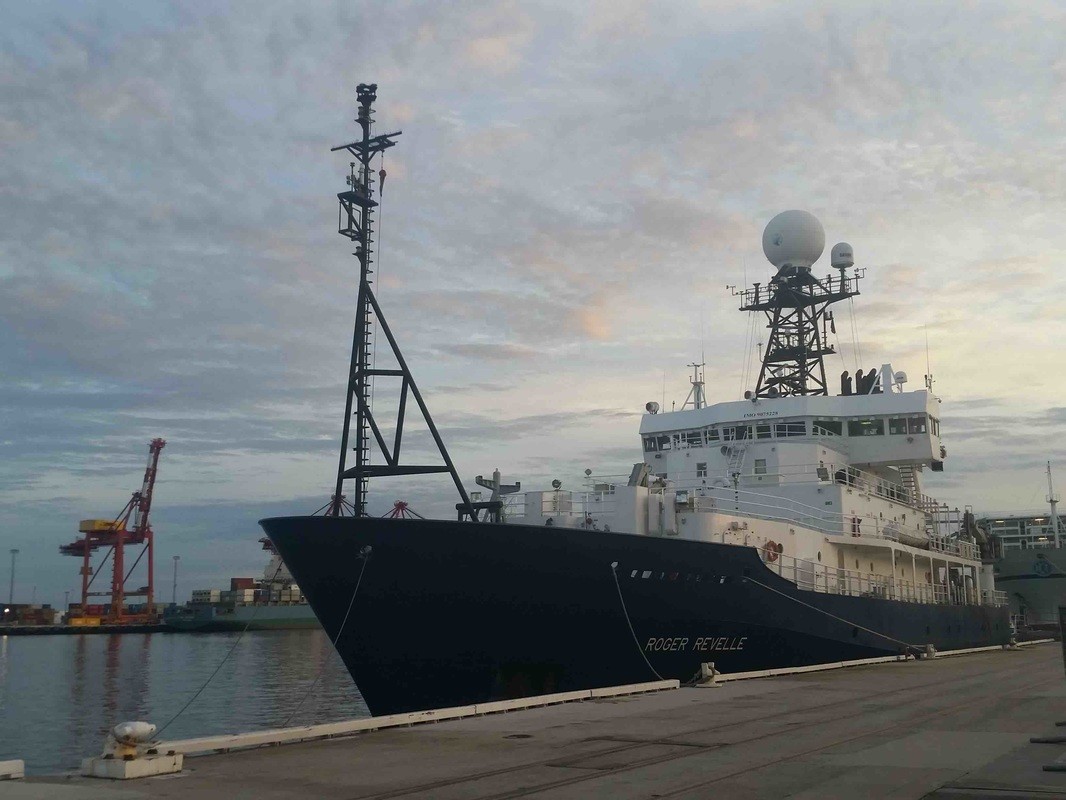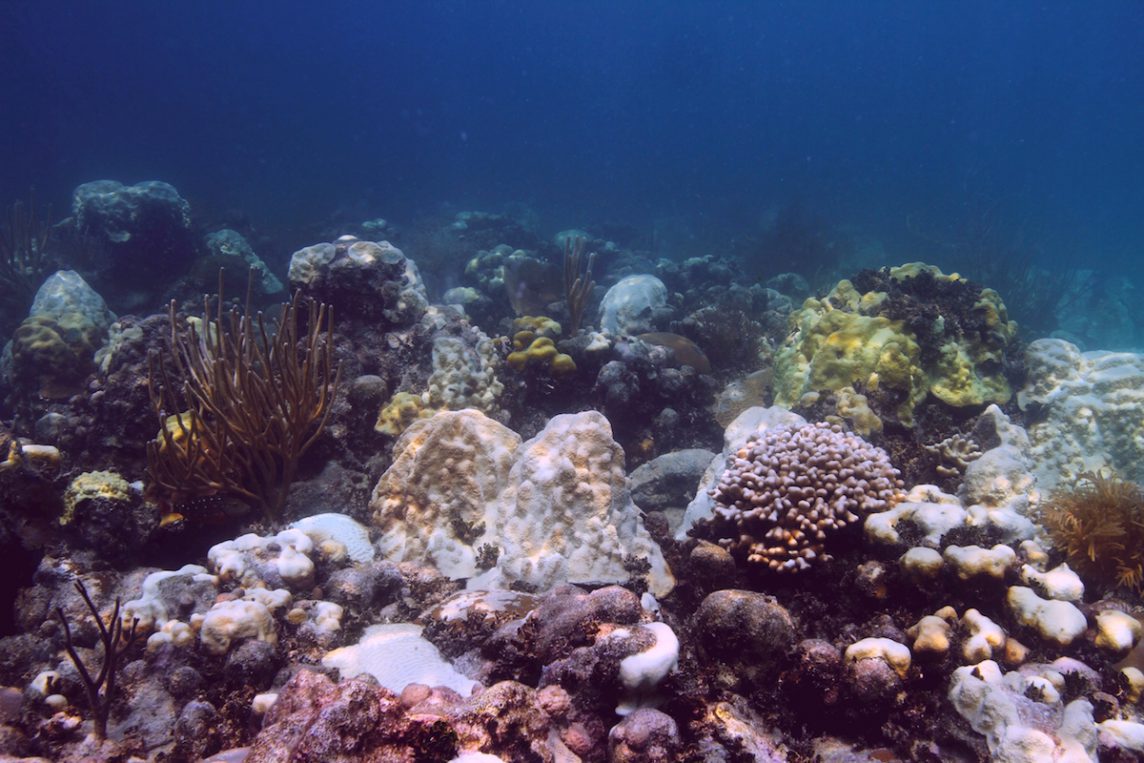Tidal flooding from events such as the so-called “King Tides” and “Super Tides” are flooding urban coastal communities with increasing frequency as sea levels rise. These tidal flood waters can acquire a wide range of contaminants and toxins as a result of soaking in the built environment of urbanized coastlines. A multi- institutional, interdisciplinary research team, including scientists from AOML, is examining the types of contamination picked up from the urbanized coastal landscape and transported into coastal waters through tidal flooding.
CHAMP Researchers at AOML to Install New Coral Monitoring Stations in the Caribbean
Coral Health and Monitoring Program (CHAMP) researchers at AOML have worked cooperatively with the Caribbean Community Climate Change Centre (CCCCC), headquartered in Belize, over the past several years to install Coral Reef Early Warning System (CREWS) stations at key coral reef sites in countries throughout the Caribbean. CREWS stations monitor an array of atmospheric and oceanographic parameters to assess the health and integrity of coral reefs. The stations are part of the CCCCC’s efforts to strengthen the Caribbean region’s ability to respond to climate variability, extreme weather conditions, pollution, and habitat change.
Study shows ocean acidification is two-front assault on coral reefs
The study, published in the Proceedings of the Royal Society B, measured changes in the reef framework in several naturally high-carbon dioxide settings near Papua New Guinea. For the first time, scientists found increased activity of worms and other organisms that bore into the reef structure, resulting in a net loss of the framework that is the foundation of coral reef ecosystems.
Volcano Spewing Carbon Dioxide Drives Coral to Give Way to Algae
The new research published online August 10 in Nature Climate Change provides a stark look into the future of ocean acidification – the absorption by the global oceans of increasing amounts of human-caused carbon dioxide emissions. Scientists predict that elevated carbon dioxide absorbed by the global oceans will drive similar ecosystem shifts, making it difficult for coral to build skeletons and easier for other plants and animals to erode them.
Increased Erosion at Acidified Coral Reefs
Corals live and thrive by maintaining a careful balance between their growth rate and the rate of erosion. Scientists already know the projected increases in carbon dioxide in our global oceans, known as ocean acidification, will slow the rate at which corals build the hard calcium carbonate skeletons that are the foundation of their habitat. A new study published online today in PLOS ONE demonstrates that in naturally highly acidified waters, these coral skeletons will also face increased erosion from microscopic organisms, called bioerosion. The result is accelerated breakdown and loss of reef structures, and potentially the loss of essential habitat.
NOAA Research on Microbial Communities Contributes to National Microbiome Initiative
On May 13th, the White House Office of Science and Technology Policy introduced the National Microbiome Initiative, an effort to support multi-agency research to help sample and better understand communities of microorganisms that are critical to both human health and the world’s ecosystems. As the nation’s premier ocean science agency, NOAA is leading interdisciplinary research to improve observation and assessment of marine microbiomes. To support this national initiative, NOAA’s Atlantic Oceanographic and Meteorological Laboratory (AOML) received nearly $2 million in funding this year to conduct a number of projects that integrate genetic sampling techniques and technologies to help advance the understanding of the ocean’s microbiomes.
Study Explores Role of El Niño in Transport of Waterborne Disease
A new study published in the journal Nature Microbiology highlights how emerging, devastating outbreaks of Vibrio infection in Latin America might be linked to El Niño, a climate pattern that periodically causes surface temperatures to warm throughout the equatorial Pacific Ocean. A researcher with the University of Miami’s Cooperative Institute of Marine & Atmospheric Studies at NOAA’s Atlantic Oceanographic & Meteorological Lab was part of an international research team that used microbiological, genomic, and bioinformatic tools to demonstrate how El Niño provides a mechanism for the transport of disease from Asia into the Americas.
AOML Oceanographers Collect Coast to Coast Measurements on the GO-SHIP Indian Ocean Cruise
During the months of March and April, AOML joined an international team of oceanographers to actively sample the Indian Ocean in support of the Global Ocean Ship-Based Hydrographic Investigation Program (GO-SHIP), an initiative to measure and investigate the ocean basins from coast to coast and from top to bottom. Aboard the R/V Roger Revelle, the team transected the Indian Ocean from the Antarctic northward into the Bay of Bengal, collecting seawater samples at 113 stations as part of a multi-decadal effort to measure various ocean properties, including temperature, salinity, nutrients, carbon and other gases.
AOML Leads Research Efforts Across Caribbean to Improve Bleaching Predictions
For the third time in recorded history, a massive coral bleaching event is unfolding throughout the world’s oceans, stretching from the Indian Ocean to the Caribbean. Above average sea surface temperatures exacerbated by a strong El Niño could result in the planet losing up to 4,500 square miles of coral this year alone, according to NOAA. The global event is predicted to continue to impact reefs into the spring of 2016.
Volcano Spewing Carbon Dioxide Drives Coral to Give Way to Algae
Scientists from NOAA and the Cooperative Institute for Marine and Atmospheric Studies at the University of Miami have documented a dramatic shift from vibrant coral communities to carpets of algae in remote Pacific Ocean waters where an undersea volcano spews carbon dioxide.
